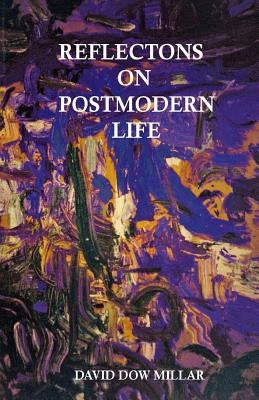Misty Tree
Reflections on Postmodern Life: Degrees of Freedom
Reflections on Postmodern Life: Degrees of Freedom
Couldn't load pickup availability
This book looks at how society has arrived at this point today and determines the mechanisms used to justify stances and social behaviour. What degree of freedom can most people really expect in life, does society only evolve through unintentional consequences, and is it driven by emotion rather than intellect? It asks questions about what really determines society's ethics and free choices and does human psychology play a more significant part in social cohesion than rational thought?
The early twenty-first century is witnessing a society that despite amelioration in living standards compared with earlier times is seeing a rise in disenchantment. Today, values are portrayed as composing of traditional ethics based on national pride and moral duty juxtaposed to ethical pluralism resulting from social change and the influx of multiple belief systems. Traditional democratic values originated from the Enlightenment and seeds within it encouraged individualism, and the pursuit of freedom of choice that propelled Western values around the world to create global capitalism, which in turn invited the rest of the world to exert their own human rights and ethnicity. The philosophy and politics behind postmodernity are discussed and related to the real activities of people. The principles and ideas behind authentic living, wellbeing and human rights that have been used to open up the UK for business are also reviewed.
The impact of technology, cultural prejudices, disenchantment and the lack of reform in political institutions to reflect the demands from a changing demographic are assessed. The methods of control are shifting from direct duty based law enforcement to a mixture of nonintrusive and open persuasions with materialistic inducement to direct the individual to choose life choices that are hoped will maintain social cohesion. Deception oils the wheels to allow effective political control and pragmatic decision-making.
Life in the UK has been stable relative to the rest of the world and gives the opportunity to see how humans from many cultural and social backgrounds live under a long established political-economic model. The true nature or makeup of humanity is reviewed to explain how biological functioning and upbringing affect behaviour. The evidence presented here does seem to indicate that the hope for a multicultural society now seems forlorn along with the expectation that postmodernity would result in a classless society. Assessment in society goes on all the time. Someone is always interested in your identity, whether it is socially or officially. Social distinction still matters but it is becoming a worldwide distinction as the poor and menial labour are differentiated and exploited to provide cheap services for an empowered professional class.
As finitude becomes more of a serious concern should scientific progress, in particular, regarding medical and healthcare be allowed to continue unabated allowing age expectancy to rise thus effectively swelling the global population while at the same time creating unprecedented disparity in the number of young to old, which puts a heavy burden on resources required to support the old so hampering the revitalising of society and limiting the choice for younger generations.
Finally, the idea of establishing semi-autonomous city states to split the global free market economy from the rest of society is muted as a solution to accommodate the desire to protect the rest of society from severe financial downturns and excesses seen to date. A comprehensive appendix contains material on factors that influence how opinions are acquired or justified. Information is provided regarding human power structures, behaviour and natural or deliberate deceptions. This material has been included to illuminate the difficulty involved in making rational assessments and to help make better judgments in a deliberately confusing world.
Author: David Dow Millar
Publisher: Misty Tree
Published: 05/16/2014
Pages: 278
Binding Type: Paperback
Weight: 0.60lbs
Size: 7.81h x 5.06w x 0.58d
ISBN: 9780992934019
This title is not returnable
Share


